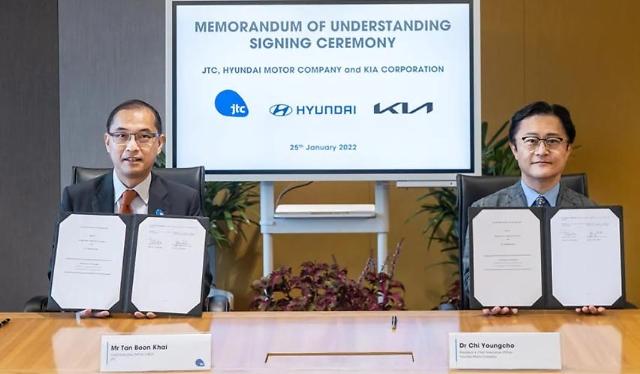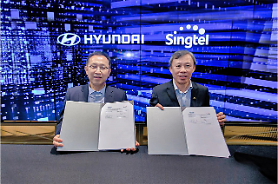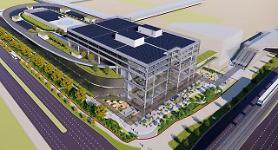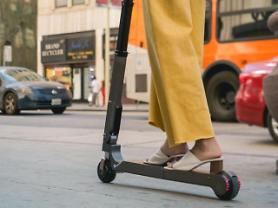
[Courtesy of Hyundai Motor Group]
SEOUL -- South Korea's Hyundai auto group will develop optimized mobility options for Singapore's next-generation industrial and business parks through transport modeling. Mobility solutions to be used in transport modeling include electric vehicles and autonomous vehicles.
A memorandum of understanding was signed between the auto group and Singapore's state-run Jurong Town Corporation (JTC). For a study using data provided by JTC, Hyundai will utilize its mobility expertise and develop transport models by analyzing transport demands in an innovation district in Jurong in western Singapore.
"The Group expects this project to serve as a stepping stone for future smart city projects in Singapore, and hopes this transport modeling and subsequent projects become a model for private innovation and government policy working in tandem," Hyundai Motor Group's chief innovation officer Chi Young-cho said in a statement on January 26.
The results of the study will be used to optimize transport flows for people and goods and establish urban planning guidelines that can support smart mobility options, Hyundai said, adding that the spaces typically set aside for conventional roads can be repurposed for individuals, businesses, or greenery.
Singapore aims to turn the Jurong innovation district into Asia's leading advanced manufacturing hub for research institutes, capability developers, technology and training providers, as well as factories of the future. "We are always on the lookout for innovative solutions which can give us insights into how better to design and masterplan the next generation of Singapore’s industrial estates and ecosystems," JTC CEO Tan Boon Khai was quoted as saying.
The auto group is building an innovation center called HMGICS in Singapore to conduct studies on future mobility and explore innovative solutions, services and disruptive technologies. The center would feature a landing port for urban air mobility and use eco-friendly energy sources to help achieve carbon neutrality. Logistics and assembly lines will be highly automated. Singaporean universities, startups and research institutes can collaborate through the center's open innovation lab.
Copyright ⓒ Aju Press All rights reserved.



